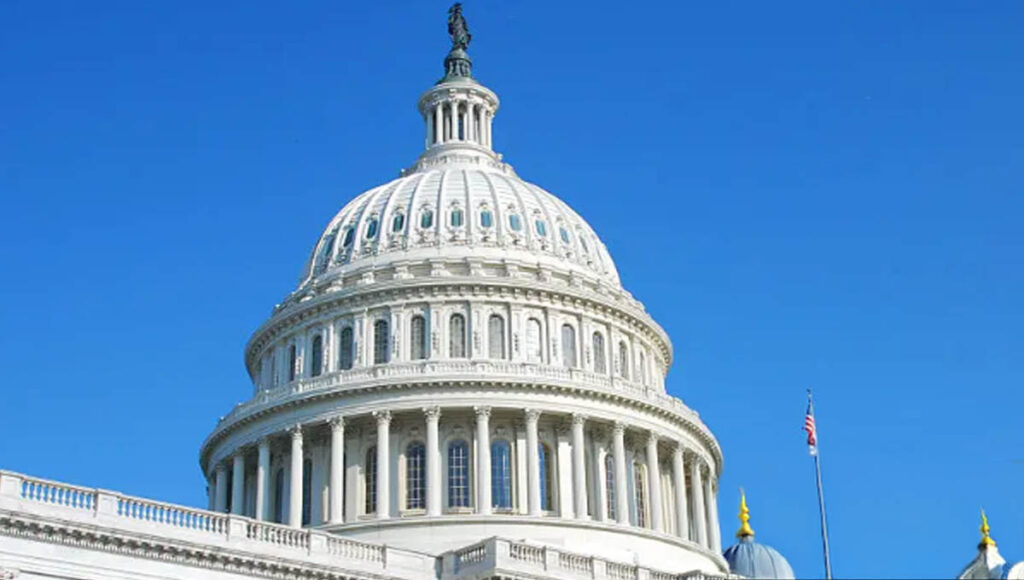
In a landmark move early Saturday, the U.S. Senate passed a Bipartisan Bill designed to increase Social Security benefits for nearly 3 million public sector workers. This group includes firefighters, police officers, teachers, and other government employees who have long been penalized by the current Social Security system. The bill, which was approved by a wide margin of 76 votes to 20, aims to correct disparities caused by two provisions that have unfairly impacted public service employees.
If President Joe Biden signs the bill into law, it will take effect for all benefits payable after December 2023. The Social Security Fairness Act, which had already gained overwhelming bipartisan support in the House of Representatives in November, will eliminate two key provisions: the Windfall Elimination Provision (WEP) and the Government Pension Offset (GPO). These provisions have historically reduced benefits for employees who have earned government pensions while working in jobs not covered by Social Security.
What the Legislation Addresses
The WEP is a provision that reduces Social Security benefits for retired or disabled workers who have worked in both covered and non-covered employment. Specifically, it affects workers who have fewer than 30 years of significant earnings in jobs that were covered by Social Security. For public service employees who worked in government jobs not contributing to Social Security but paid into the program through other employment, this provision has led to unfairly low retirement benefits.
The GPO is another provision that reduces spousal or surviving spousal benefits for individuals who receive pensions based on non-covered government employment. The Congressional Budget Office notes that these provisions disproportionately impact those who have spent their careers in public service, dedicating themselves to serving their communities.
The Impact on Public Sector Employees
The effects of the WEP and GPO are far-reaching, with an estimated 28% of state and local government employees covered by alternative retirement systems potentially impacted. The largest group affected includes permanent civilian federal employees who were hired before January 1, 1984. These workers are disproportionately female, and many have faced financial insecurity as a result of the benefit cuts.
Senators Sherrod Brown (D-OH) and Susan Collins (R-ME), who co-sponsored the bill, have emphasized that these provisions penalize individuals who have chosen careers in public service. In a poignant example, Collins shared the story of a retired teacher from Bangor, Maine, who returned to work at 72 after her husband’s death. Because of the GPO, her survivor benefits were reduced by two-thirds, forcing her to re-enter the workforce despite her desire to remain retired.
Bipartisan Support and Criticism
The passage of the Social Security Fairness Act in the Senate marks a significant victory for workers who have been advocating for these changes for years. Senator Collins, in particular, has a long history of working on Social Security reform and expressed satisfaction that the bill will finally eliminate the unfair WEP and GPO provisions. “In 2003, I held the first-ever Senate hearing on the WEP and the GPO, and I am pleased that now these unfair provisions in our Social Security system will finally be done away with,” Collins said after the final vote.
However, critics of the legislation argue that its passage could exacerbate the financial instability of the Social Security system. The Congressional Budget Office (CBO) estimates that the bill will cost nearly $200 billion over the next 10 years. With the Social Security trust fund projected to become insolvent by 2033, or 2035 when combined with the disability trust fund, critics worry that this legislation could hasten the program’s insolvency. The Committee for a Responsible Federal Budget suggests that the bill could bring forward the insolvency date by as much as six months.
Additionally, some critics believe that while reforming the WEP provisions is necessary, eliminating them entirely may lead to unintended consequences. They argue that the WEP is a reasonable means of preventing overgenerous benefits from being paid to workers who would otherwise profit from the regular Social Security benefit formula.
A Step Toward Fairness
Despite the opposition, the passage of the Social Security Fairness Act represents a crucial step toward ensuring that public sector employees are no longer penalized for their choice to serve their communities. As the bill moves to President Biden’s desk, it brings hope to millions of workers who have long been advocating for a fairer system—one that acknowledges the sacrifices they’ve made in their careers. If enacted, this legislation will ensure that those who have given so much to their communities will receive the retirement benefits they’ve earned.
For read specific news visit again https://khudaniajournal.com

